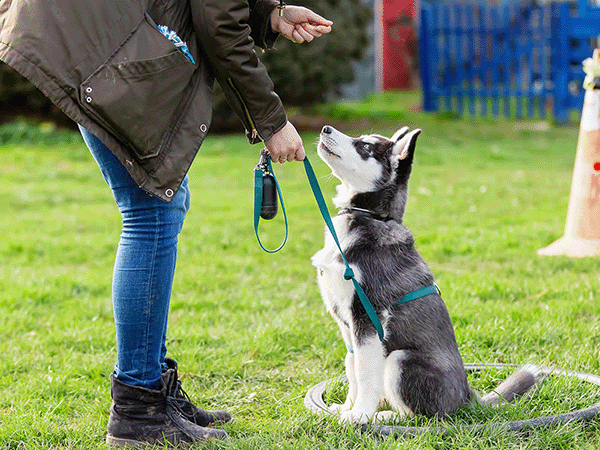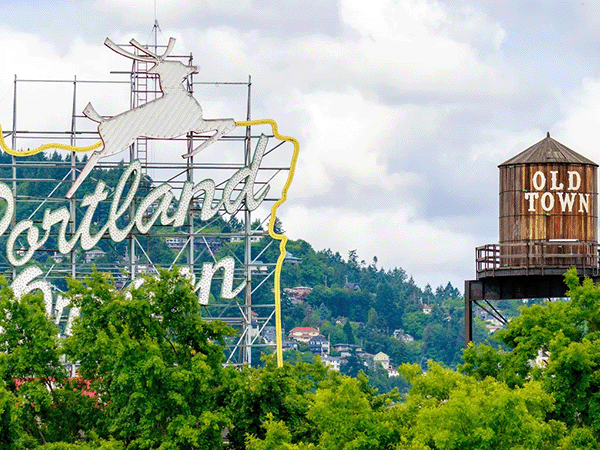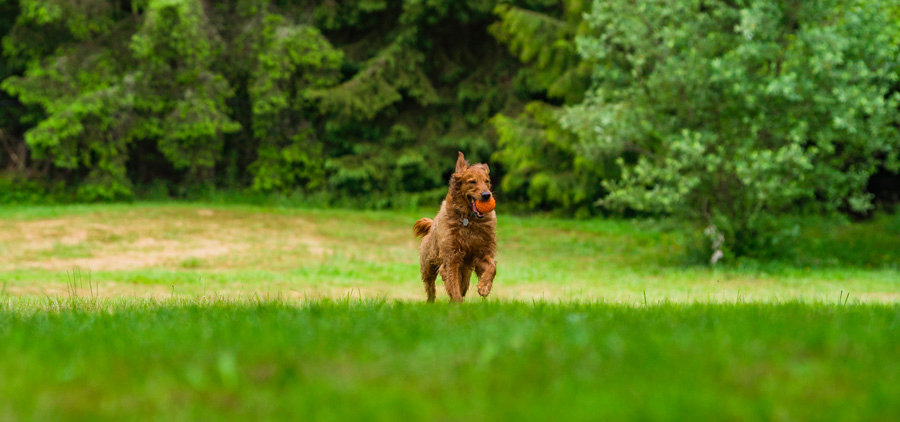French Bulldogs for First-Time Owners: A Guide

Discover the French Bulldog, a breed celebrated for its playful, friendly, and curious nature. Recognized as a small dog, French Bulldogs have their origins in France, where they were initially bred for companionship starting in the 1800s century.
In this post, we share insights from nearly 10,000 Sniffspot users, offering practical advice for new and prospective French Bulldog owners. Whether you’re considering adopting or rescuing a French Bulldog or already have one, you’ll find valuable tips on how to care for and enjoy life with a playful French Bulldog.
French Bulldogs: they're playful, charming, and seriously cuddly. But before you welcome a Frenchie into your life, it's smart to get the inside scoop. This guide offers practical French Bulldog advice, drawn from nearly 10,000 Sniffspot users. We'll cover everything from temperament and activity levels to breed-specific care, perfect for both prospective and current Frenchie owners. Ready to learn how to give your furry friend the best possible care? Keep reading!
Source: Sniffspot Community Breed Survey 2024
French Bulldog At a Glance
- Breed Type: Companion
- Size: Small
- Life Expectancy: 10 – 12 years
- Healthy Weight Range: 16 – 28 lbs
- Height Range: 11 – 12 inches
- Temperament: Playful, Friendly, Curious
- Coat Type: Short
- Color: Brindle, fawn, white, black, and other variations
Key Takeaways
- French Bulldogs thrive on companionship and gentle care: These playful pups do best in climate-controlled homes with moderate daily exercise and positive reinforcement training. Early socialization is key for a well-adjusted Frenchie.
- Proactive health management is essential for Frenchies: Be aware of their predisposition to skin, digestive, and respiratory issues. Regular vet checkups and a healthy lifestyle can help mitigate these concerns.
- Sniffspot connects you with resources and safe spaces for your Frenchie: Discover dog-friendly parks, trainers, and helpful information to support your Frenchie's well-being and enrich their life.
Getting to Know the French Bulldog
According to nearly 10,000 Sniffspot community users who shared real-world data about their French Bulldog, we learned that these dogs are playful and friendly. The French Bulldog is also known to be very friendly and social with children and very friendly with other pets.
When living with a Frenchie, 59% of our owners indicated that a climate-controlled environment due to breed sensitivity is ideal. Additionally, 50% of owners found that a large house with a fenced yard is also acceptable. This dog is moderately trainable, often benefiting from a professional trainer and owners say that the French Bulldog learns best with positive reinforcement, consistent routines, and socialization.
In terms of exercise, 39% of Sniffspot owners say their French Bulldog benefits from low exercise every day, including around 30 minutes of walks and playtime a day. The Sniffspot Frenchie community would not recommend this dog for first-time owners due to their potential health challenges.
History of the French Bulldog
The French Bulldog, often affectionately called the “Frenchie,” has a history rooted in England and France. This small breed was originally developed in the 1800s as a companion dog. Its ancestors include the English Bulldog, from which it inherited its distinctive muscular build and flat face, but it was bred down to a smaller size.
The breed gained popularity among lace workers in Nottingham, England, who brought the small bulldogs with them to France during the Industrial Revolution. In France, the breed was refined and became a favorite in Parisian society. By the late 19th and early 20th centuries, the French Bulldog had become a symbol of chic sophistication, admired for its playful nature and unique appearance.
The French Bulldog’s rise in popularity was marked by its adoption into prominent circles and its presence in dog shows, where it was celebrated for its distinctive “bat-like” ears and compact size. Today, the breed is known for its affectionate and lively personality, making it a beloved companion in homes around the world.
French Bulldog Temperament and Traits
- Temperament: Playful, Friendly, Curious
- Energy Level: Low
- Trainability: Moderately trainable – Learns commands with consistent training and practice.
- Grooming needs: Low maintenance – Requires minimal grooming, such as occasional brushing and baths.
- Good with Kids: Very friendly and social with children
- Good with Other Pets: Very friendly with other pets
French Bulldog Ownership: What to Expect
As a French Bulldog owner, it’s important to know the best dog breed tips and what to expect from current French Bulldog owners.

Source: Sniffspot Community Breed Research 2024
Daily Care Routine for Your Frenchie
Frenchies are relatively low-maintenance in terms of grooming, but a few key daily habits will keep your dog happy and healthy. Here’s what you need to know:
Dental Care
French Bulldogs often have serious problems with their teeth, so you'll need to brush them at least three times a week. Daily brushing is ideal. Use a dog toothbrush and dog toothpaste specifically formulated for dogs. Never use human toothpaste, as it contains ingredients that are toxic to dogs. For more tips on dog dental care, check out the American Veterinary Medical Association's guidelines.
Ear Cleaning
Clean your Frenchie’s ears weekly, or whenever they seem dirty, with unscented baby wipes. Once a month, perform a deeper cleaning with cotton balls soaked in a canine ear-cleaning solution. If you notice any persistent redness, odor, or discharge, consult your veterinarian, as this could indicate an infection.
Skin Fold Cleaning
Those adorable wrinkles are a signature Frenchie feature, but they also require special attention. Clean your dog’s skin folds daily with a commercial skin cleansing pad or baby wipes to prevent infections. Moisture can get trapped in those folds, creating a breeding ground for bacteria and yeast. Regular cleaning will help keep your Frenchie’s skin healthy and comfortable. For more information on dog skin health, visit the American Kennel Club's website.
Addressing Common Concerns
French Bulldogs are a wonderful breed, but like all breeds, they have certain predispositions. Being aware of these potential issues will help you provide the best possible care for your Frenchie.
Heat Sensitivity and Safety
Frenchies struggle with heat due to their short noses, which restrict airflow. This makes them more susceptible to heatstroke than other breeds. Keep your Frenchie cool with shade, plenty of water, and limited exercise during hot weather. Consider using cooling products like cooling mats or cooling vests, especially during the summer months. If you're looking for a safe place for your Frenchie to play, even when it's hot, check out Sniffspot's climate-controlled listings.
Swimming Precautions
Their short, stocky bodies aren't built for swimming, making them prone to back injuries and breathing difficulties in the water. Always supervise your Frenchie closely around water, and consider using a life vest if they absolutely must be near water. It's generally best to avoid swimming altogether.
Supervision with Children
Frenchies are generally good with children, but it's crucial to supervise their interactions. Always supervise your Frenchie with children to ensure playtime doesn't get too boisterous. Teach children how to handle a dog gently and respectfully. This will help prevent accidental injuries to both the child and the dog. The ASPCA offers helpful advice on fostering positive relationships between dogs and children.
Obesity Prevention
French Bulldogs are prone to weight gain and obesity, so it's important to measure food portions carefully and limit treats and table scraps. Consult your veterinarian or a certified dog nutritionist to determine the appropriate portion sizes for your Frenchie. Regular exercise, even short walks, will also help keep them at a healthy weight. You can find more information on canine obesity at the Association for Pet Obesity Prevention.
Potential Health Issues
French Bulldogs are prone to several health issues due to their genetics, including breathing problems (brachycephalic syndrome), skin allergies, eye problems, hip dysplasia, intervertebral disk disease (IVDD), and gastrointestinal issues. Regular veterinary checkups are essential for early detection and management of these conditions. Choosing a reputable breeder who screens their dogs for these health problems can also reduce the risk. PetMD provides a comprehensive overview of French Bulldog health concerns.
Grooming Your Frenchie
French Bulldog dogs require low-maintenance grooming. This means French Bulldog owners should expect minimal grooming, like occasional brushing and baths. French Bulldog dogs have a short coat, which is ideal for easy care. Their short coat is considered low shed.
To keep your French Bulldog’s coat healthy and up to breed standards, include brushing in your daily routine and wiping with a damp cloth to remove loose hairs and debris. Of the coat types for common breeds in the companion group, the grooming needs for French Bulldogs are low maintenance.
Exercise Requirements for French Bulldogs
French Bulldogs require low activity each day. Though one of the most popular dog breeds, Frenchies are considered a very athletic, high-energy breed. Frenchies make great pets and thrive with around 30 minutes of walks and playtime a day. Owners of Frenchies report their dogs especially love playing with squeaky toys, chasing/playing with a ball or frisbee, and tug-of-war.
When small breeds like Frenchies don’t get sufficient exercise, they’re more likely to act out with undesirable behaviors like stubbornness and separation anxiety. They need consistent training, mental activity, and regular low exercise to avoid excess energy.
Understanding Your Frenchie's Activity Level
French Bulldogs, often affectionately called “Frenchies,” are a breed that beautifully balances playfulness with a laid-back demeanor. While known for their athleticism and bursts of energy, their exercise needs are relatively low compared to other breeds. According to insights from nearly 10,000 Sniffspot users, French Bulldogs thrive with around 30 minutes of walks and playtime each day. This moderate exercise routine helps keep them healthy and happy without overwhelming them.
Owners have noted that Frenchies particularly enjoy engaging activities such as playing with squeaky toys, chasing balls or frisbees, and a good game of tug-of-war. These playful interactions not only provide physical exercise but also stimulate their minds, which is essential for their overall well-being. Looking for fun places to play with your Frenchie? Check out Sniffspot's listings of dog parks near you! For those extra hot days, you might even find a dog-friendly water park on Sniffspot.
It’s important to recognize that when French Bulldogs don’t receive sufficient exercise, they may exhibit undesirable behaviors, such as stubbornness and separation anxiety. For training tips and resources, check out our articles on top dog trainers. Consistent training, mental stimulation, and regular low-impact exercise are crucial to prevent excess energy and ensure a well-adjusted, happy Frenchie.
Feeding Your French Bulldog
What should you feed your French Bulldog to keep them healthy? As a low-energy breed, what you feed them is important. A reported 61% of our community feeds their Frenchie commercial dry kibble.
With low exercise, Frenchies should eat 1 to 1.5 cups a day of vet-recommended food to maintain a healthy weight of around 16 – 28 lbs. However, your French Bulldog’s ideal weight and food depend on your pet’s sex, activity level, and age.
Common French Bulldog Health Issues
The French Bulldog breed is most prone to skin conditions (e.g., allergies, dermatitis) and digestive issues (e.g., bloating, sensitive stomach). A reported 59% of our French Bulldog owners reported skin conditions like allergies, yeast infections, impetigo, ringworm, alopecia, and folliculitis. Frenchie’s risk for these challenges increases as they age.
Similarly, 42% reported digestive issues like constipation, diarrhea, vomiting, and lack of appetite. Lastly, 36% of French Bulldog owners claim their dog struggles with respiratory issues like chronic cough, tracheal collapse, pneumonia, brachycephalic syndrome, or respiratory tract infections — a common Frenchie health concern. If you’re worried about any of these health issues above, talk to your Frenchie’s vet.
Are French Bulldogs Friendly?
Another important thing to consider when adopting a Frenchie is whether or not this dog fits with your current family. How friendly are French Bulldogs compared to other small-sized breeds?

Source: Sniffspot Community Breed Survey 2024
With moderate training, you can hone your Frenchie’s companion instinct into a playful and friendly family dog. Introducing your pet to positive reinforcement (treats, praise, rewards) and consistent daily training routines early helps them avoid undesirable behaviors like stubbornness and separation anxiety. Our community French Bulldog owners comment on their pet’s friendliness:
- Easy to maintain, very cute, they can be weird little guys. (MMM)
- Sophie is the most affectionate dog, she’s my stress relief after a stressful day, and she’s also a goofball. (Kathryn )
- Easy to get along with, adapts to whatever she is presented with in life! (Kp)

Sydney Rae on Unsplash
Training Your French Bulldog
Whether you’re adopting a Frenchie puppy or an adult French Bulldog, training is a significant part of owning a small-sized breed. Without proper training, your Frenchie is more likely to display undesirable behaviors such as stubbornness and separation anxiety. Providing stimulating activities is a great first step, but this needs to be paired with the right training for your Frenchie.
As a companion breed, French Bulldogs benefit from praise and positive reinforcement. Here’s what our Frenchie community recommended based on their experience with their dogs:
- Positive Reinforcement (94%): This includes treats, praise, rewards, and so on for positive behavior
- Consistent Routines (45%): A consistent training routine allows your pet to get comfortable with expectations
- Socialization (42%): Socializing your dog with other pets, dogs, and people prepares them to interact with the world
As dogs bred for companionship, Frenchies are considered moderately trainable, often benefiting from a professional trainer.
Effective Training Techniques for Frenchies
Training a Frenchie can be a rewarding experience, strengthening your bond and helping your dog become a well-adjusted member of the family. Providing stimulating activities is a great first step, but pair it with the right training approach.
Leash Training
Leash training is essential, allowing your Frenchie to safely explore. Start early by introducing your Frenchie to a collar and leash in a positive, low-distraction environment. Keep initial sessions short and fun, rewarding good behavior with praise and treats. Gradually increase the length of walks as your Frenchie becomes comfortable. For pulling or leash reactivity issues, consider guidance from a professional dog trainer. Sniffspot's list of top dog trainers can help you find a qualified professional.
Basic Commands and Housebreaking
Teaching basic commands like "sit," "stay," and "come" is crucial for communication. French Bulldogs thrive on praise and positive reinforcement. Use high-value treats and enthusiastic praise to motivate your Frenchie. Keep training sessions short, consistent, and focused on one command at a time. Housebreaking requires patience and a consistent schedule. Take your Frenchie outside frequently, especially after waking up and meals. Reward successful potty breaks with praise and treats. Accidents happen—avoid punishment and focus on positive reinforcement.
Crate Training and Mental Stimulation
Crate training provides a safe den for your Frenchie, aiding in housebreaking and preventing destructive behaviors. Introduce the crate gradually, making it positive with treats and toys. Never force your Frenchie inside. Frenchies benefit from a professional trainer, who can help with crate training and incorporating mental stimulation. Puzzle toys, interactive games, and short training sessions can keep your Frenchie mentally engaged and prevent boredom.
Training Challenges and Solutions
While Frenchies are intelligent and eager to please, they can also be stubborn. Understanding potential challenges and implementing effective solutions makes training smoother.
Stubbornness and the Importance of Patience
Without proper training, your Frenchie is more likely to display undesirable behaviors like stubbornness and separation anxiety. Patience is key. Occasional stubbornness can be overcome with consistent positive reinforcement and engaging training sessions. Avoid harsh corrections, which can damage your bond and create anxiety. Consider dog training classes for professional guidance.
Positive Reinforcement Methods
Positive reinforcement is the most effective training method for a Frenchie. Our research shows 94% of Frenchie owners recommend it. This includes treats, praise, rewards—anything your dog finds motivating. Celebrate successes to build confidence and encourage desired behaviors.
Avoiding Harsh Training Techniques
Use positive reinforcement, not harsh methods, to prevent fear and anxiety. Harsh techniques can damage your relationship and lead to behavioral problems. Focus on making training fun and rewarding.
Managing Eating Habits
French Bulldogs are prone to eating anything they find, so supervise them, especially puppies. This impacts training, especially with food rewards. Ensure training treats are small and healthy, factoring them into your Frenchie's daily caloric intake. Teach your Frenchie to "leave it" to prevent scavenging.
Consistency, Routine, and Early Socialization
A consistent routine helps your Frenchie understand expectations. Establish a daily training schedule and stick to it. This creates a predictable environment. Early socialization is crucial, preparing your dog to interact confidently. Expose your Frenchie to various sights, sounds, and experiences from a young age. Sniffspot's private dog parks offer a great resource for controlled socialization.
Why Do People Love French Bulldogs?
We asked Sniffspot Frenchie owners what they love the most about their French Bulldog pups, and here’s what they had to say:
- So much personality. Very entertaining, loyal, and snuggly. (Christina)
- They’re snuggly and sweet. They’re easy to bring places or travel with due to size. (Kylie)
- I love the personality of French bulldogs. They are silly and very sweet. Always keep you entertained! Plus they are exceptionally cute! (Kylie C.)
Challenges of French Bulldog Ownership
Similarly, Frenchie owners shared some of the biggest challenges of living with their French Bulldog:
- We adopted our Frenchie and don’t know her history, but she is hypervigilant, guarded, and can be aggressive and anxious. (BMS)
- They are not good listeners. They’re bossy and chew on everything. Clingy. Maintaining their health is expensive. (Christina)
- Stubborn and harder to train. Not the sharpest tool in the shed. (Kylie)
French Bulldogs for First-Time Owners?

Source: Sniffspot 2024 Community Dog Breed Survey
According to 53% of our Sniffspot community, French Bulldogs are not a great first-time dog. This comes from their playful nature and high likelihood of health concerns. French Bulldog owners say it best:
- Their health restrictions can be difficult to navigate. You have to be very conscious of temperatures, foods, and potential allergens with the breed. They can also be very stubborn as well! (Kylie C.)
- stubborn and incredibly naughty, smart and sneaky! I kept what felt like a constant eye on mine for the first 2 years it felt like and she still got into plenty of trouble! (MP)
- Giving him enough mental stimulation without over working his body that is prone to over heating is an ongoing challenge. (Jessica)
Preparing for Frenchie Parenthood
Bringing a French Bulldog into your life is a big decision. A little preparation goes a long way! Here’s what to consider before welcoming your new Frenchie:
Finding a Reputable Breeder
If you're going the breeder route, finding a reputable source is crucial. Thoroughly research breeders, checking reviews and asking for references. Ensure they conduct health screenings and prioritize early socialization. Don't forget to review any contracts or guarantees. A responsible breeder will be happy to answer your questions and provide the information you need to make an informed decision.
Establishing Veterinary Care
Just like us, Frenchies need regular medical care. Before bringing your Frenchie home, locate a vet experienced with the breed. Ask for referrals from other Frenchie owners or search online. A meet-and-greet with the vet is a great way to ensure a good fit.
Essential Tips for New Frenchie Owners
So, you’ve welcomed your Frenchie home! Congratulations! Here are some essential tips to ensure a smooth transition and a happy, healthy life for your new companion:
Travel Tips
Frenchies can make wonderful travel companions. When traveling with your Frenchie, pack essentials like a comfy dog park, plenty of blankets, fresh water, and poop bags. And always keep them on a leash in unfamiliar environments.
Car Safety
This is non-negotiable: never leave your Frenchie in a parked car. Temperatures inside a parked car can rise rapidly, even on mild days, putting your Frenchie at risk for heatstroke.
Outdoor Safety in Hot Weather
Frenchies are sensitive to heat due to their short noses. On warm days, provide plenty of shade and water, limit exercise during the hottest parts of the day, and consider using cooling products like vests or mats. Check out Sniffspot’s listings for dog water parks for a fun way to cool down!
Pet Insurance
Many Frenchie owners recommend pet insurance. Frenchies can be prone to certain health issues, and pet insurance can help manage unexpected veterinary expenses.
Finding a Frenchie-Savvy Vet
As mentioned earlier, a vet experienced with French Bulldogs is essential. They can provide tailored care and address breed-specific health concerns.
Preventing Jumping and Other Injuries
Frenchies are prone to back and joint issues. Discourage jumping from high places like furniture. Consider using pet stairs or ramps to help them access their favorite spots safely.
Addressing Itching and Allergies
If your Frenchie is itching, it could be due to allergies or other skin problems. A visit to the vet is recommended to diagnose and address the issue.
Understanding Breathing Patterns
Some panting after exercise is normal for Frenchies. However, prolonged or excessive panting, especially without exertion, could indicate a problem and warrants a vet visit.
Puppy Kindergarten and Socialization
Early socialization is key for a well-adjusted Frenchie. Puppy kindergarten classes provide a safe and controlled environment for them to interact with other puppies and learn basic commands. Learn more about puppy socialization.
Preparing for Unexpected Challenges
Like any pet, owning a Frenchie comes with unexpected challenges and expenses. Be prepared for the occasional vet visit, the cost of food and supplies, and the time commitment involved in training and caring for your new companion.
Cold Weather Care
Frenchies can also be sensitive to cold weather. In colder climates, consider using a dog sweater or coat to keep them warm during walks.
Supervision and Separation Anxiety
Frenchies thrive on attention and can experience separation anxiety when left alone for extended periods. Provide plenty of mental stimulation and consider crate training to help them feel secure.
Water Safety
Frenchies are not strong swimmers. Supervise them closely around water and consider a life vest if they’ll be near pools or other bodies of water.
Hypoallergenic Food and Teething
Feed your Frenchie a high-quality, easily digestible food. If they experience allergies, your vet may recommend a hypoallergenic diet. During puppyhood, provide appropriate chew toys to help with teething.
Tips for French Bulldog Owners
Luckily, our Sniffspot community is full of experienced, trustworthy Frenchie owners. These French Bulldog breed owners share the most essential dog breed tips and advice for prospective or new dog owners:
Creating a Safe and Enriching Environment
Frenchies thrive in comfort. Our Sniffspot 2024 Community Breed Research shows that climate control is key for these pups. 59% of Frenchie owners emphasize a climate-controlled environment because of the breed's sensitivity to temperature. A large fenced yard is great, but prioritize a climate-controlled space to keep your Frenchie happy and healthy. This might mean limiting their outdoor time during extreme heat or cold.
Don't let their low-energy label fool you. French Bulldogs need physical and mental exercise. A short walk and some playtime each day are essential, as 39% of Sniffspot owners confirm. Sniffspot's dog parks offer a safe, controlled environment for Frenchies to socialize and play. Combine this with puzzle toys and training to keep their minds engaged and prevent boredom-related behaviors like stubbornness and separation anxiety.
Finally, be mindful of potential health issues. Frenchies are prone to skin and digestive problems, so choose high-quality food and monitor their skin and digestion. Regular vet checkups are crucial for early detection of any health concerns. If you notice changes in their behavior, eating habits, or skin, consult your vet.
Create the Right Environment for Your Frenchie
- Research. Go and have a look at them and hold them beforehand. Look at other dogs too. Work out who will walk the dog. Where they will sleep. (AO)
- Consider their health issues and long-term needs. (SB)
Consider Long-Term Health and Needs
- Do your research and make sure you are buying your pup from a conservation breeder. These breeders try and breed out many of the health conditions associated with the breed to ensure a long, healthy, happy life. (Amanda)
- Have to be prepared for all of the breathing and skin issues that come with this breed. Checking their paws, and teeth for plaque, and paying attention to allergies, especially towards chicken (most common). Be prepared for lots of cuddling and kisses they’re the best dogs! (Jillian)
Understanding Reactivity in French Bulldogs
- This dog breed is very protective and aggressive towards other dogs but very loving (Penelope )
- Be persistent with their stubbornness. They are full of love. (Erin )
A Hands-On Breed for a Hands-On Owner
- Don’t assume that all dogs from any breed are the same! Lots of French Bulldogs are known to be incredibly ‘easy’ apartment dogs that don’t need much exercise, she is the smallest dog I’ve ever had and by far needs the most attention and exercise of any I’ve ever had! (MP)
- Be sure you can have a lot of time to spend with them, they prefer being social and with their people. (Stephanie)
Frequently Asked Questions about the French Bulldog
French Bulldog Lifespan
The average lifespan of a French Bulldog is typically between 10 – 12 years.
French Bulldog Size and Weight
An adult French Bulldog weighs between 16 – 28 lbs pounds and stands between 11 – 12 inches tall.
Grooming Requirements for Frenchies
French Bulldog dogs require low-maintenance grooming. Regular grooming helps to keep their coat healthy and manageable. French Bulldog dogs have a short coat, which is well-suited for easy care. They are considered low shedders.
To maintain your French Bulldog’s coat, it’s important to wipe with a damp cloth to remove loose hairs and debris. Among companion breeds, French Bulldog grooming is categorized as relatively easy.
French Bulldog Exercise Needs
French Bulldogs require low activity each day. Though one of the most popular dog breeds, Frenchies are classified as a minimally athletic, low-energy breed.
Frenchies are excellent companions and thrive with around 30 minutes of walks and playtime a day. Owners of Frenchies note that their dogs particularly enjoy playing with squeaky toys, chasing/playing with a ball or frisbee, and tug-of-war.
If small breeds like Frenchies don’t receive enough exercise, they may develop unwanted behaviors. These dogs need ongoing training, mental stimulation, and consistent exercise to channel their energy effectively.
French Bulldogs and Children
According to our data, French Bulldogs are very friendly and social with children with children.
French Bulldogs and Other Pets
Our research indicates that French Bulldogs are very friendly with other pets with other pets.
Best Food for a Healthy French Bulldog
As a low-energy breed, the diet of your Frenchie is crucial. A significant 61% of our community feed their Frenchie commercial dry kibble.
For optimal health, Frenchies should consume 1 to 1.5 cups of vet-recommended food a day to maintain a healthy weight of around 16 – 28 lbs. The exact amount and type of food will depend on your French Bulldog’s sex, activity level, and age.
Common Health Issues in French Bulldogs
The French Bulldog breed is particularly prone to skin conditions like allergies, yeast infections, impetigo, ringworm, alopecia, folliculitis, and digestive issues like constipation, diarrhea, vomiting, and lack of appetite. Our data shows that 59% of French Bulldog owners reported skin conditions like allergies, yeast infections, impetigo, ringworm, alopecia, and folliculitis. Frenchie’s risk for these health issues increases as they age.
Additionally, 42% reported digestive issues like constipation, diarrhea, vomiting, and lack of appetite. Finally, 36% of French Bulldog owners indicated their dog struggles with respiratory issues like chronic cough, tracheal collapse, pneumonia, brachycephalic syndrome, or respiratory tract infections, which are common Frenchie health concerns. If you have concerns about any of these health issues, consult your Frenchie’s veterinarian.
Helpful Resources for French Bulldog Owners
Whether you’re a current French Bulldog dog owner or you’re considering adopting a Frenchie, Sniffspot is here to lend a helping hand. Here are some of the most relevant resources for French Bulldog owners.
Sources:
- French Bulldog Breed Information. (American Kennel Club)
- French Bulldog Rescue Network. (French Bulldog Rescue Network: FBRN)
Finding the Perfect Space for Your Frenchie
When you’re thinking about the ideal living situation for a French Bulldog, it’s key to remember their specific needs. According to nearly 10,000 Sniffspot users, 59% of French Bulldog owners said a climate-controlled environment is best because of the breed’s sensitivity to temperature. This highlights how important it is to provide a comfortable space that protects them from extreme heat or cold. A secure outdoor space, like a fenced yard (which 50% of owners found acceptable), can also really improve their quality of life, giving them a safe place to play and explore. Even though Frenchies are adaptable, having that dedicated outdoor area can make a big difference.
When it comes to exercise, 39% of Sniffspot owners report that their French Bulldog does well with low-impact exercise each day, such as about 30 minutes of walks and playtime. This tells us that while they don't need a huge amount of outdoor space, regular access to safe areas for short walks and play is essential. French Bulldogs really thrive in environments where they can socialize and bond with their owners. As one Sniffspot user wisely pointed out, "Be sure you can have a lot of time to spend with them; they prefer being social and with their people." This underscores the importance of a living space that allows for close interaction and companionship.
Sniffspot's Dog-Friendly Parks and Amenities
If you're a Frenchie owner looking for safe and enriching environments for your dog to play and socialize, Sniffspot offers a fantastic solution. We connect dog owners with private, dog-friendly parks and spaces across various cities. These spaces provide a controlled and secure environment for your Frenchie to enjoy off-leash playtime without the worries of crowded dog parks or unpredictable encounters with other dogs.
Sniffspot offers a variety of amenities to cater to different needs and preferences. You can find dog water parks for those hot summer days, perfect for Frenchies who love to splash and cool off. For the more adventurous Frenchie, Sniffspot lists hiking trails and indoor parks that offer stimulating exercise and exploration opportunities. Knowing your Frenchie's sensitivity to temperature, these options allow you to tailor the outing to their comfort level.
Most recent articles
Related articles
Top dog guides per area
Dog training guides

Dog Food Aggression: Why You Shouldn't Punish It
Does your dog ever growl when you walk by their food dish? Maybe they get possessive of treats, carrying them far away and giving you side-eye when you start to approach — or snarling at your other pets or children if they get too close.

Best Dog Fields in the US: 25+ Wide-Open Spaces for Your Pup to Run Free
The best dog fields in the US offer something that traditional enclosed parks simply can't match: acres of open space where your pup can truly stretch their legs and run at full speed. From Colorado's 470-acre prairie meadows to Tennessee's award-winning "Outback," these wide-open spaces allow dogs to roam, explore, and exercise naturally while engaging instincts that cramped urban parks suppress.

The Ultimate Guide to Scent Training for Dogs
Your dog's nose is an amazing tool. Did you know they have 40 times the olfactory receptors than humans? Scent training for dogs taps into this superpower, turning everyday moments into exciting sniff-fests. It's enriching for all types of dogs – reactive, shy, or simply adventurous. Ready to explore the world of scent work for dogs? Let's get started.

Service Dog Training Costs: DIY vs. Pro
More than 80 million Americans rely on their service dogs to help them navigate the world. Task-trained assistance animals perform a huge range of life-changing—in many cases, life-saving—services: These dogs act as eyes for visually impaired handlers, provide mobility support, alert to seizures and blood sugar crashes, interrupt anxiety attacks, remind their people to take medications, and so much more.

How to Deal With Puppy Potty Training Regression
You thought those dreaded middle-of-the-night potty breaks were over. You were finally free from cleaning up puppy puddles. Then, suddenly, your furry friend starts having accidents again. It's frustrating, right? This puppy potty training regression is more common than you think. Don't worry; we'll help you get your pup back on track. We'll cover the common causes, offer practical solutions, and give you actionable steps to tackle this challenge together.

Dirty Dog Syndrome: Causes, Solutions, and Prevention
It's a cringe-worthy moment every dog owner dreads: your furry friend chowing down on something truly disgusting. If your dog has a penchant for poop, you're dealing with coprophagia. It's more common than you think, and thankfully, often manageable. This article explores the reasons behind dirty dog syndrome, from instinct to learned behavior. We'll also give you practical tips to help break this unpleasant habit.

How to Train Your Rescue Dog: A Complete Guide
* All Sniffspot articles are reviewed by certified trainers for quality, please see bottom of article for details *
Dog enrichment guides

Best Dog Water Parks in the US: 15+ Amazing Splash Destinations for Your Pup
Do you have a water-loving dog looking to burn some energy? There are countless dog parks to visit throughout our country — but some of them become far too hot in the midday sun to be safe for your pets to play. That’s why we’ve put together a list of some of the best dog water parks throughout the United States! At these locations, your pup can frolic, splash, and swim to their heart’s content.

Best Dog Fields in the US: 25+ Wide-Open Spaces for Your Pup to Run Free
The best dog fields in the US offer something that traditional enclosed parks simply can't match: acres of open space where your pup can truly stretch their legs and run at full speed. From Colorado's 470-acre prairie meadows to Tennessee's award-winning "Outback," these wide-open spaces allow dogs to roam, explore, and exercise naturally while engaging instincts that cramped urban parks suppress.

Best Toys for Herding Dogs: Keeping Your Pup Happy & Engaged
Herding dogs are amazing, intelligent companions. But that also means they need more than just a simple game of fetch. Finding the right toys for herding dogs is key to keeping them happy and stimulated. This article explores some of the best toys for herding dogs, including options specifically for breeds like Border Collies and Australian Shepherds. We'll help you discover the perfect herding toys for dogs to tap into their natural instincts and keep them entertained for hours.

Tough Dog Toys for Aggressive Chewers: A Practical Guide
Does your dog destroy every toy you give them? Is your house littered with the remnants of plush toys? Are you tired of wasting money on "indestructible" dog toys for aggressive chewers that don't last? Then this post is for you. We'll cover everything you need to know about finding the best dog toys for aggressive chewers, so you can finally give your pup something safe, durable, and fun.

Daily Exercise Calculator: How Much Exercise Does Your Dog Need?
Everyone knows dogs need exercise, but how much is enough? Walks are great, but creating a truly balanced fitness plan means understanding your dog's specific needs. This post helps you develop a daily exercise calculator for your dog, considering breed, age, and lifestyle. We'll cover fun activities, understanding exercise intensity, and recognizing when your pup has had enough. Let's create a plan that keeps your dog happy and healthy!

Complete Guide To Herding With Dogs
* All Sniffspot articles are reviewed by certified trainers for quality, please see bottom of article for details *

Dog Enrichment Activities: The Ultimate Guide
Ever feel like your dog is restless or bored? They may be getting enough exercise, but still need more. That's where enrichment activities for dogs come in. Giving your dog opportunities to sniff, explore, and problem-solve can make a world of difference. Whether you have a puppy, adult, or senior dog, enriching their environment is key for their well-being. Let's explore how to add cognitive enrichment for dogs, even tailoring activities to your dog's breed with breed specific enrichment and fun enrichment games for dogs.
Dog reactivity guides

Rottweiler Aggression: Truth vs. Myth
Many dogs have gotten a bad reputation over the years for being "dangerous breeds." Rottweilers are among them. Like pit bulls and other large, blocky-headed types of dogs, these powerful and beautiful animals are often assumed to be aggressive.

Best Dog Fields in the US: 25+ Wide-Open Spaces for Your Pup to Run Free
The best dog fields in the US offer something that traditional enclosed parks simply can't match: acres of open space where your pup can truly stretch their legs and run at full speed. From Colorado's 470-acre prairie meadows to Tennessee's award-winning "Outback," these wide-open spaces allow dogs to roam, explore, and exercise naturally while engaging instincts that cramped urban parks suppress.

What Is a Reactive Dog? A Practical Guide for Owners
Does your dog suddenly transform into a barking, lunging Tasmanian devil on walks? It's stressful for both of you. If this sounds familiar, you might have a reactive dog. Understanding what is a reactive dog is the first step to calmer walks. We'll explore the common triggers and give you actionable strategies to manage and modify this behavior. Let's turn those stressful walks into enjoyable outings.

How to Socialize a Reactive Dog: A Step-by-Step Guide
Does your dog display reactivity to other pets or people—barking, lunging, or growling when they see their triggers? Whether they're a rescue still settling in, missed critical socialization as a puppy, or had a negative experience, you're not alone. Reactivity is one of the most common dog behavior concerns, and with the right approach, you can help your reactive dog feel calmer and more confident around their triggers.

What Is a Reactive Dog? A Complete Guide
Is your dog overly excited or fearful around other dogs? Do they bark, lunge, or whine? You might have a reactive dog. Many dog owners face this challenge. Understanding what a reactive dog is is the first step to helping them. This guide explores the common causes of dog reactivity, explains what makes a dog reactive, and offers practical tips and resources. Let's work together to build a stronger bond with your dog and enjoy stress-free walks.

9 Best Online Communities for Reactive Dog Parents
Does your dog's reactivity make walks stressful? You're not alone. Many dog owners face similar challenges. This guide offers practical advice and support for managing reactivity, including finding the best online dog training for reactive dogs. We'll connect you with reactive dog support groups, share training tips, and explore resources like the best dog training app for reactive dogs. Let's build a stronger bond with your dog, together.
* All Sniffspot articles are reviewed by certified trainers for quality, please see bottom of article for details *
How To Groom a Reactive Dog
* All Sniffspot articles are reviewed by certified trainers for quality, please see bottom of article for details *
Sniffspot community guides

The State of Public Dog Parks Across the United States
From 2009 to 2020, there was a 40 percent increase in the development of public dog parks. Designated spots for canine exercise have become commonplace in every major city in North America — many pet owners won’t even consider renting an apartment that doesn’t have its own fenced-in pet area for their canine companions.

Best Dog Fields in the US: 25+ Wide-Open Spaces for Your Pup to Run Free
The best dog fields in the US offer something that traditional enclosed parks simply can't match: acres of open space where your pup can truly stretch their legs and run at full speed. From Colorado's 470-acre prairie meadows to Tennessee's award-winning "Outback," these wide-open spaces allow dogs to roam, explore, and exercise naturally while engaging instincts that cramped urban parks suppress.

How This Family is Affording Their Dream Property Through Renting it Hourly to Dogs
Thousand Oaks, California has been a safe haven for Sniffspot host, Jen, since childhood. Having grown up in busy Santa Barbara, Jen, an introvert from an early age, would seek out solitude and serenity away from tourists attractions and droves of people visiting from elsewhere. “My grandparents own 60 acres about a 30 minute drive from here, and I grew up spending every summer and every holiday visiting them on the ranch,” Jen explained. “In Santa Barbara, we wouldn't go to the beach on the weekend because that's where everybody was, so you'd find places off the beaten path where the tourists weren't. For me, the ranch was just my happy place.”

Host Tips: Ellen K. What Makes Sniffspot Successful for Me
Ellen is the host of Country Pasture Getaway, one of Sniffspot's most popular sniff spots. She has taken the time to write up the lessons she has learned about how to be a great sniff spot host.

How this Oregon Farmer is Making a Business From Renting Her Land to Dogs
Just 20 minutes outside of the busy city of Portland, Oregon, and settled right on the banks of the Columbia River, you’ll find what countless visitors have flocked to the area in search of – mountain views, crisp, clean air, and running water for miles. What you might not expect to find, however, is a hidden oasis designed just for dogs and their people, owned and operated by a farming couple and enjoyed by visitors on two legs, and four.

Host Tips: Fran T. Providing Great Guest Service at our Spot
Fran is the host of Ranch Setting, one of Sniffspot's most popular spots. She has taken the time to write up the lessons she has learned about how to be a great Sniffspot host.

How Sniffspot Helped a Nervous Rescue Work Through His Fears and Change His Family’s Life
This is the story of a family and dog rescuing each other.
Top dog trainers in the US

The Best Dog Trainers in the United States of 2026
This is a list of the top dog trainers in the United States, based on votes from the Sniffspot community and the general public.
The Best Dog Trainers in Seattle, WA of 2026
This is a list of the top dog trainers in Seattle, WA, based on votes from the Sniffspot community and the general public.
The Best Dog Trainers in Portland, OR of 2026
This is a list of the top dog trainers in Portland, OR, based on votes from the Sniffspot community and the general public.
The Best Dog Trainers in Los Angeles, CA of 2026
This is a list of the top dog trainers in Los Angeles, CA, based on votes from the Sniffspot community and the general public.
The Best Dog Trainers in New York, NY of 2026
This is a list of the top dog trainers in New York, NY, based on votes from the Sniffspot community and the general public.
City dog parks guides

Top 10 Indoor Dog Parks: A US Guide
Looking for a space to play with your dog no matter what the weather’s like outside? Look no further than our list of the best indoor dog parks in the United States! These climate-controlled spaces are growing in popularity as pet ownership increases throughout the country. As a bonus, many of them also offer dog training, boarding, grooming, or daycare services on the premises.

Best Dog Fields in the US: 25+ Wide-Open Spaces for Your Pup to Run Free
The best dog fields in the US offer something that traditional enclosed parks simply can't match: acres of open space where your pup can truly stretch their legs and run at full speed. From Colorado's 470-acre prairie meadows to Tennessee's award-winning "Outback," these wide-open spaces allow dogs to roam, explore, and exercise naturally while engaging instincts that cramped urban parks suppress.

Best Dog Parks in the US: Ultimate Guide to Public & Private Off-Leash Adventures
Is your pup giving you those pleading "let me run free" eyes? Whether you're a new dog parent or a seasoned pro looking for fresh adventures, finding the perfect off-leash paradise for your furry friend can feel ruff! From sun-soaked California beaches where your water-loving lab can make a splash to mountain trails in Vermont where your adventure buddy can chase every scent, we've sniffed out the 15 best dog parks across America.

Dog Parks Near Me: Las Vegas Edition
Looking for the perfect dog park near me in Las Vegas? You're in luck! This guide explores all the best options for your pup, from public dog parks to private dog parks near me on Sniffspot. We'll help you find the ideal spot for playtime, socializing, and fresh air. Plus, we'll cover essential etiquette and safety tips to ensure a happy visit for everyone. Get ready for some tail-wagging fun!

Top Sniffspot Locations: Find the Perfect Dog Park
Looking for the perfect dog park? Whether you need a wide-open public space or a private, fenced-in spot, this guide will help you find the best dog parks across the US. We'll cover top-rated public parks, the perks of private dog parks, and even explore Sniffspot locations – giving your pup a safe and fun place to play. Ready to find your dog's new favorite spot? Let's go!

Sniffspot: Portland's Best Private Dog Parks
Ready to discover Portland's best dog parks? Whether you're looking for a public park or the unique experience of a private Sniffspot, this guide has you covered. We'll help you find the perfect spot for your pup, with tips on what to bring, how to prepare, and even understanding dog body language. Plus, we'll explore some top Portland dog parks, including public and Sniffspot options, so you can plan your next dog-friendly adventure in the City of Roses.
Portland Dog Parks: Public & Private Options
This page is about public city dog parks and also includes Sniffspot private dog parks. Sniffspot is the largest network of private dog parks for rent in the world!
Small Dog Park Guide: Tips for Finding the Perfect Spot
Finding the perfect dog park for your small breed can be ruff! Big dog parks can be overwhelming, even dangerous, for little pups. This comprehensive guide helps you sniff out the best small dog parks for your pint-sized companion, covering everything from essential safety checklists to top recommendations for small dog parks across the US—including both public spots and private dog parks.
Dogs breeds

German Shepherd Guide: Best Family Dog? Truth from 9K Owners
The German Shepherd Dog (GSDs) are known for their intelligence, loyalty, and striking appearance. They're also incredibly versatile, excelling as working dogs and devoted family companions. This guide covers everything you need to know about GSDs, from understanding their unique traits and rich history to practical advice on training and care. So, whether you're a seasoned GSD owner or just starting your research, let's explore this remarkable breed together.

Best Dog Fields in the US: 25+ Wide-Open Spaces for Your Pup to Run Free
The best dog fields in the US offer something that traditional enclosed parks simply can't match: acres of open space where your pup can truly stretch their legs and run at full speed. From Colorado's 470-acre prairie meadows to Tennessee's award-winning "Outback," these wide-open spaces allow dogs to roam, explore, and exercise naturally while engaging instincts that cramped urban parks suppress.

Labrador Retriever: America's Best Family Dog? Owner Truth
Discover the Labrador Retriever, a breed celebrated for its playful nature, affectionate temperament, and trainability. Labradors are known for their friendly demeanor and adaptability, making them perfect family companions and versatile working dogs. As one of the most popular types of retrievers, Labs are ideal companions for various lifestyles and are recognized by the American Kennel Club (AKC) as an excellent breed for families.

Golden Retriever Advice: The Complete Owner's Guide
Golden Retrievers: they're gorgeous, playful, and incredibly popular. But before you welcome one into your home, you need the right golden retriever advice. This guide draws on the wisdom of nearly 10,000 Golden Retriever owners, offering practical tips for caring for these affectionate dogs. From understanding their high energy levels to mastering grooming and training, we'll cover everything you need to know. So whether you're already a devoted Golden parent or just starting your research, get ready to learn how to give your furry friend the best possible care.

Are American Staffordshire Terriers Good for First-Time Owners: Complete Guide
Think American Staffordshire Terriers are tough? Think again. While their muscular build might intimidate some, these dogs are known for their playful and loyal personalities. This guide draws on the experience of nearly 10,000 AmStaff owners to reveal the truth about this often misunderstood breed. Want to learn more about caring for an American Staffordshire Terrier? You're in the right place.

Australian Shepherd Facts: Breed Info & Care Guide
Discover the Australian Shepherd, an AKC breed celebrated for its trainable, playful, and affectionate nature. Despite its name, the Australian Shepherd is actually a native breed to the United States, originally developed to breed on farms and ranches. Considered a medium dog, Australian Shepherds were bred for herding beginning in the 1950s. As one of the high-energy breeds, Aussies are known for their boundless energy and need for regular exercise, including aerobic exercise.

Essential Husky Facts for Owners: Breed Guide
Discover the Siberian Husky, a breed celebrated for its curious, intelligent, and loyal nature. Considered a medium-sized dog, Siberian Huskies were originally bred in Russia for sledding, beginning in the early 20th Century. Today, they're one of the most popular active breeds in North America.




























